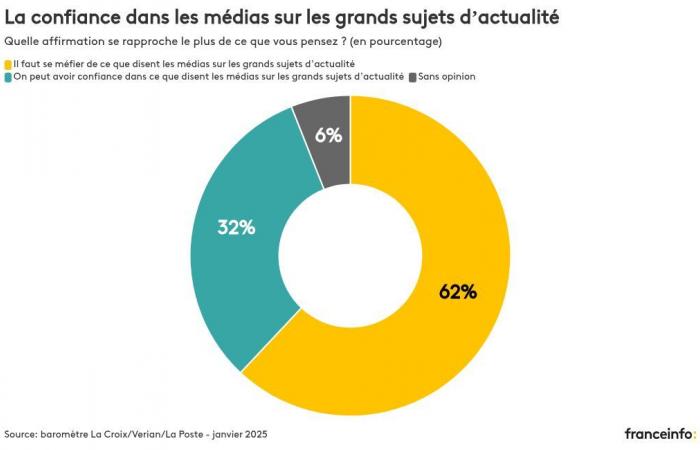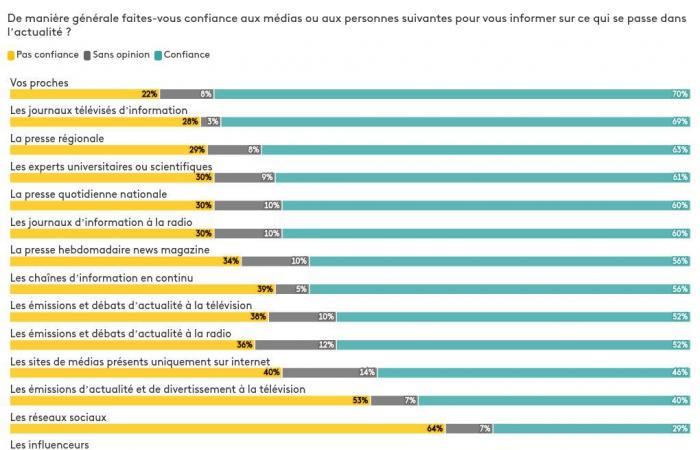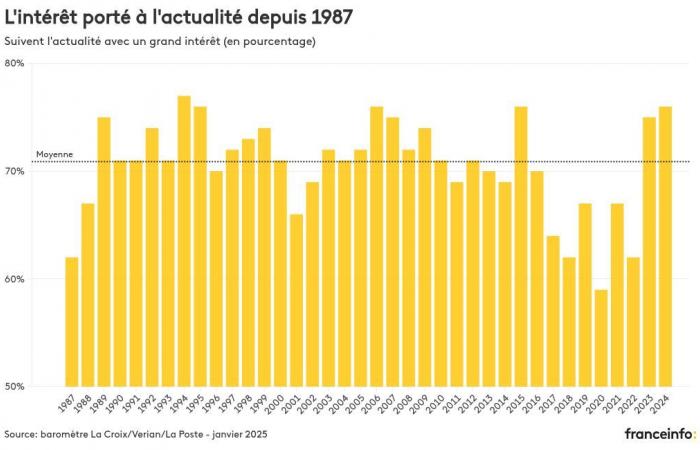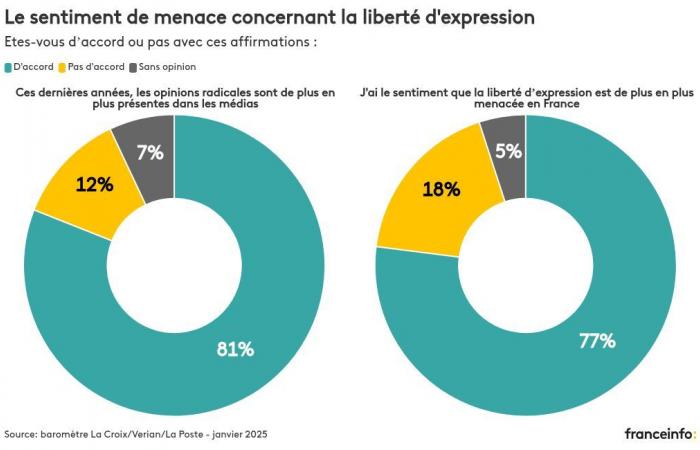62% of French people consider that it is necessary “be wary of what the media say on major current affairs issues”, according to the 38th edition of the barometer The Cross/Verian/La Poste on the confidence of the French in the media, published Tuesday January 14 on the occasion of the Médias en Seine festival. This is five points more compared to the 2023 barometer.
To obtain information, those surveyed have more confidence in their loved ones (70%), television news programs (69%), then the regional press (63%). Conversely, the media or people causing the most doubt are: influencers (74% do not trust), social networks (64%), news and entertainment programs on television (53 %).
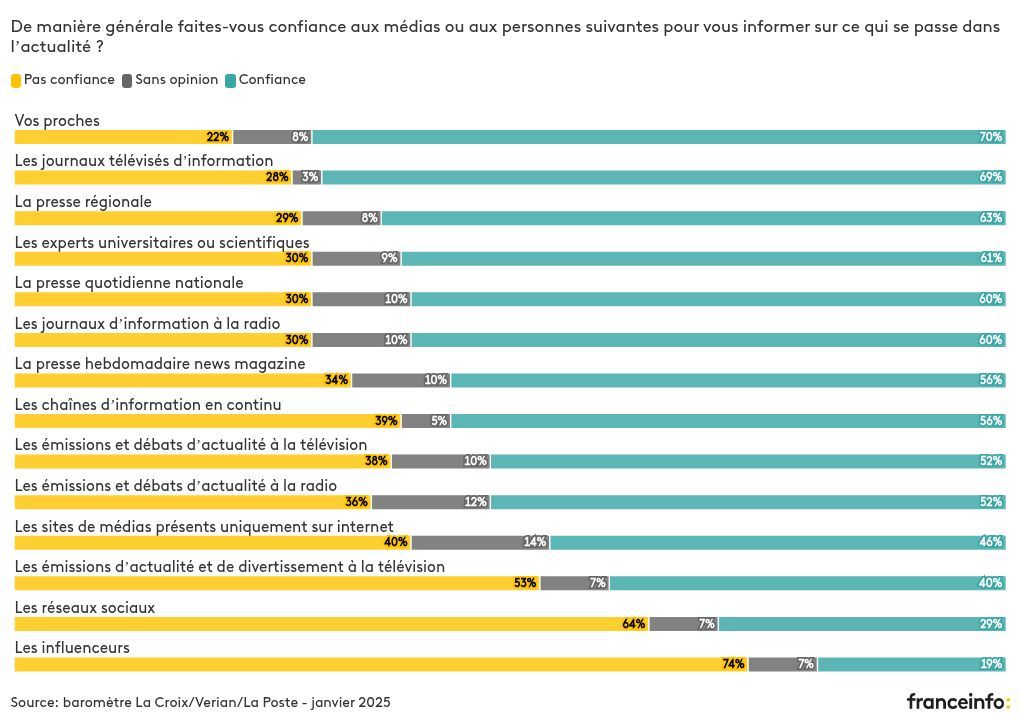
The youngest respondents (18-24 years old) estimate at 64% that it is a good thing that “certain media or journalists choose to assert and defend their opinions when they cover current events”. The older the people surveyed get, the lower this proportion becomes. But only those aged 65 and over are in the majority (57%) who think this is a bad thing.
A small majority of respondents (51%) say they have “a feeling of fatigue or rejection in relation to current events”. A stable figure for two years. It is caused by two main factors: “It’s always the same subjects in the media,” an index which is however down 4 points since the last barometer (44% January 2025 compared to 48% in November 2023). On the other hand, the French feel more and more “anxious or powerless in the face of information”. This is the second factor, it is increasing (41% January 2025 against 38% in November 2023).
This “fatigue”, ce “rejection” or these “angoisses” do not, however, erode the interest that French people have in current affairs. This index has remained very high since January 2023: 76% of respondents say they follow it with “great interest”.
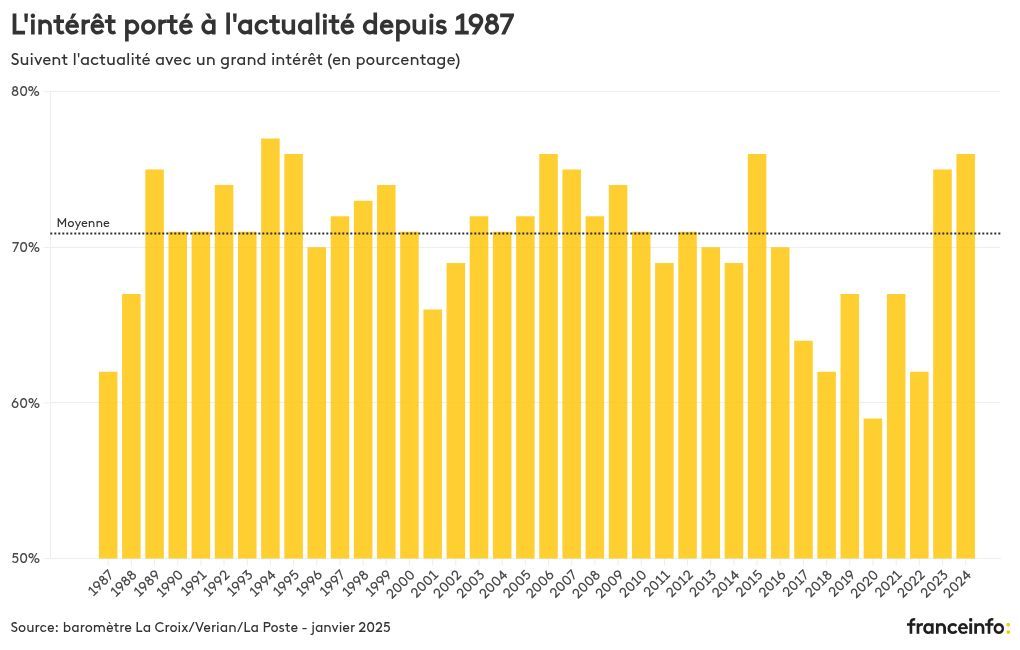
Many hot topics in 2024 have been covered “as it should” according to the respondents. This is the case of the Paris 2024 Games, the dissolution of the National Assembly and the legislative elections which followed, or even the conflict in the Middle East. On the other hand, the media “talked too much” of the American presidential election (41% of respondents). Conversely, 52% of respondents believe that the media have not “not spoken enough” discussions on the law on the end of life. Concerning the quality of the treatment of current issues, the war in Ukraine was “well treated” in 2024 (52%), as does climate change (45%). But the subject linked to the difficulty in public services was poorly treated for 56% of respondents. Faced with climate change, a large majority of respondents (69%) believe that “the media does not talk enough about solutions or reasons for hope.” The media also do not emphasize enough “the economic and social issues linked to climate change” (65%).
Interest in news items is still very strong. 63% of respondents follow this type of subject, led by supporters of the RN (75%) and CSP- (71%). However, a large majority of those surveyed (75%) believe that “too much media coverage of certain news stories contributes to a feeling of insecurity.”
81% of French people believe that radical opinions are increasingly present in the media in recent years, again according to the 38th edition of the barometer The Cross/Verian/La Poste. Another lesson from this barometer is that French people are also in the vast majority (77%) in agreement on the fact that “Freedom of expression is increasingly threatened in France.” A feeling especially shared by supporters of the RN (85%) and by those aged 35 and over (79%).
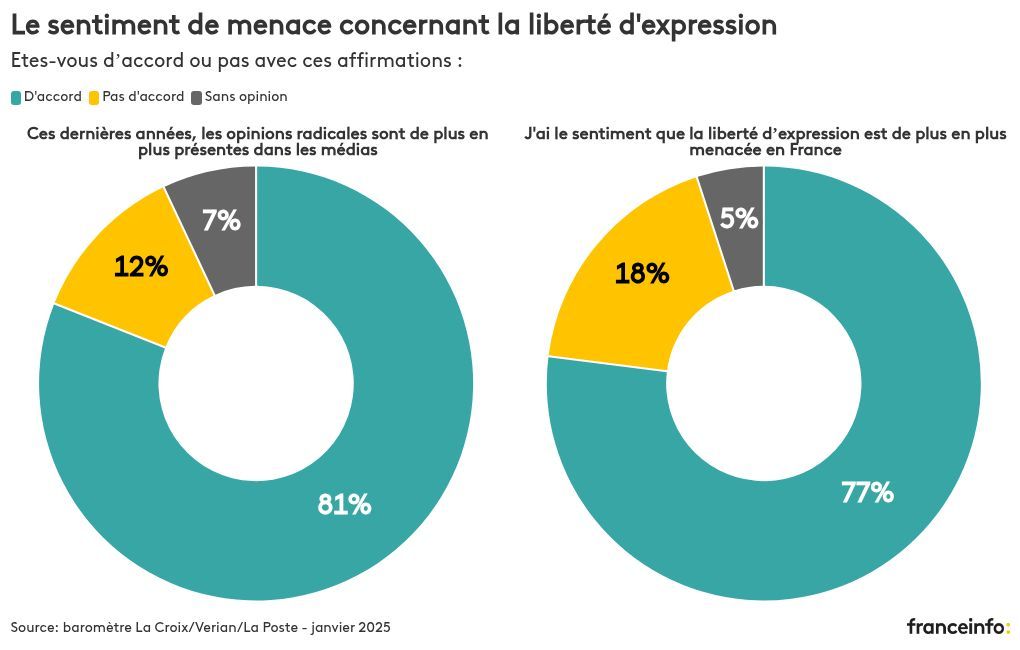
However, he is “essential to guarantee freedom of expression and the right to caricature”, judge 59% of French men and women, “even if it may offend certain people or groups.” A feeling shared above all by the oldest (50-64 years old; 65 years old and over), with 66%.
The younger the public gets, the weaker this conviction becomes, falling to 48% among 18-24 year olds. But even for this age category, there are more people who believe that it is necessary “freedom of expression and the right to caricature” rather than “respect individuals and their sensitivities, even if this may restrict freedom of expression and the right to caricature” (46%).
In this regard, there is only one category of people who consider it more essential to “respect individuals and their sensitivities” (53%) that “guarantee the “freedom of expression and the right to caricature” (43%), these are people claiming to belong to the La France Insoumise (LFI) party.
Methodology: This study was carried out by Verian for La Croix and La Poste on a national sample of 1,006 people, representative of the entire population, aged 18 and over. The interviews were carried out online, from November 25 to 28, 2024.


